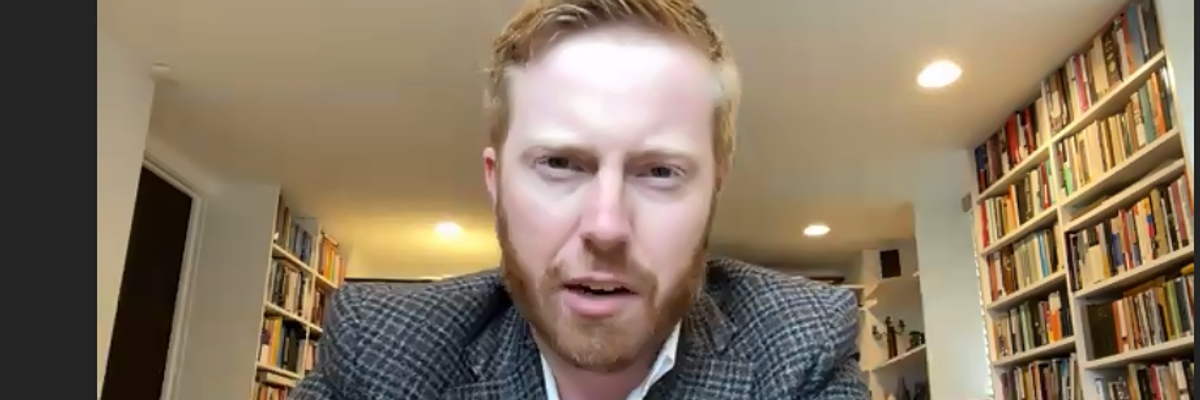Freshman Rep. Peter Meijer, a Republican from Michigan whose independence on Trump and war issues has made headlines in his first two months in office, confirmed his support for repealing the 2002 Authorization for the Use of Military Force, saying it came down to two words.
“Constitutional hygiene.”
“There is nothing really that complex here,” he told a virtual audience on Thursday. He said there is no substantive argument for keeping the measure, which was put into place to invade Iraq and remove Saddam Hussein from office nearly 20 years ago. Meijer, a combat veteran and former Afghanistan-based NGO, left Iraq with the last big wave of forces in 2011. The idea that Washington’s hands would be tied without it is ridiculous, he said. There are other authorities, like Article II, he said, if the administration wanted to justify action. While that is up to another debate, he said, “if we repealed it (2002 AUMF) eight years ago it wouldn't have precluded any activity that we have engaged in since.”
Meijer was one of only two Republicans (the other, Rep. Ken Buck of Colorado) to help pass Democratic Rep. Barbara Lee’s repeal of the 2002 AUMF out of the House Foreign Affairs Committee last month. He has also introduced his own legislation to repeal not only the 2002 AUMF, but the still-open 1991 and 1957 AUMFs as well.
He told Thursday’s webinar, hosted by Andrew Lautz of the National Taxpayers Union and Jonathan Bydlak of R Street, that this is all part of Congress taking back its Constitutional oversight authorities, a goal he had front and center when he ran for office.
“I definitely went into my Iraq deployment in 2010 with a sense of optimism, but left with a strong sense of pessimism,” he said. The failures of Iraq were a symptom of a much larger system failure in all of our post-9/11 conflicts, he said, in that they reflected the waning oversight and growing disconnect between the Executive and the people. “We need people in office who understand the severity, who understand the consequences” of “what the government does or doesn’t do” and be prepared to act on it by asserting their proper Constitutional authority.
On the 2001 AUMF, which was enacted to fight Al-Qaida and its supporters after the 9/11 attacks, Meijer has a slightly different view. He believes while it has been stretched too far, to cover “operations in 17 to 18 different countries,” it will need to be reformed or replaced with something else (this is a point of great debate with folks lining up on the repeal/replace or repeal/don’t replace lines).
“I am not in support of outright repeal of 2001,” he said. Reform, he added, would narrow targets and geography, and set time limits for authorities.
The 2002 AUMF should be an easier affair in terms of action in Congress, he said, but it’s “frustrating” that even if Lee’s bill passes the House, it may not see the light of day in the super-divided Senate. “For things that should be low-hanging fruit, folks dig in their heels for not very good reasons. I guess at the end of the day some members of Congress will do whatever they can to avoid a hard decision.”
















